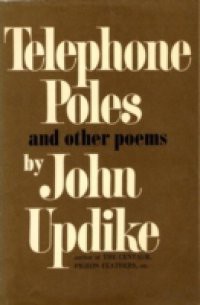WHEN, five years and five books of fiction ago, THE CARPENTERED HEN, John Updike's first collection of verse, was published, Phyllis McGinley wrote: ';I have been happily reading Mr. Updike in The New Yorker for some time and am happy, now, to own him collected. When he first appeared in that magazine, I was so elated to see a new name in light verse that I felt like crying with the Ancient Mariner ';A Sail, A Sail!' His is what poetry of this sort exactly out to beplayful but elegant, sharp-eyed, witty.' In the Saturday Review, David McCord wrote: ';Furthermore, he is a graceful border-crosser (light verse to poem) as Auden has been; as Betjeman and McGinley frequently are.' This second collection is equally divided between poems that, in their verbal jugglery and humorous bias, seem to qualify as ';light' and poems that, one way or other, cross the problematic border into the general realm of poetry. The distinction cannot be clear-cut. The poet is consistently concerned with Man's cosmic embarrassment, and the same vision illuminates the creatures of ';The High Hearts' and ';Seagulls.' Science and religion, so frequently and variously invoked, frame a single paradox, the paradox of the mundane; and each poem, whether inspired by an antic headline or a suburban landscape, rejoices in the elusive surface of created things.

